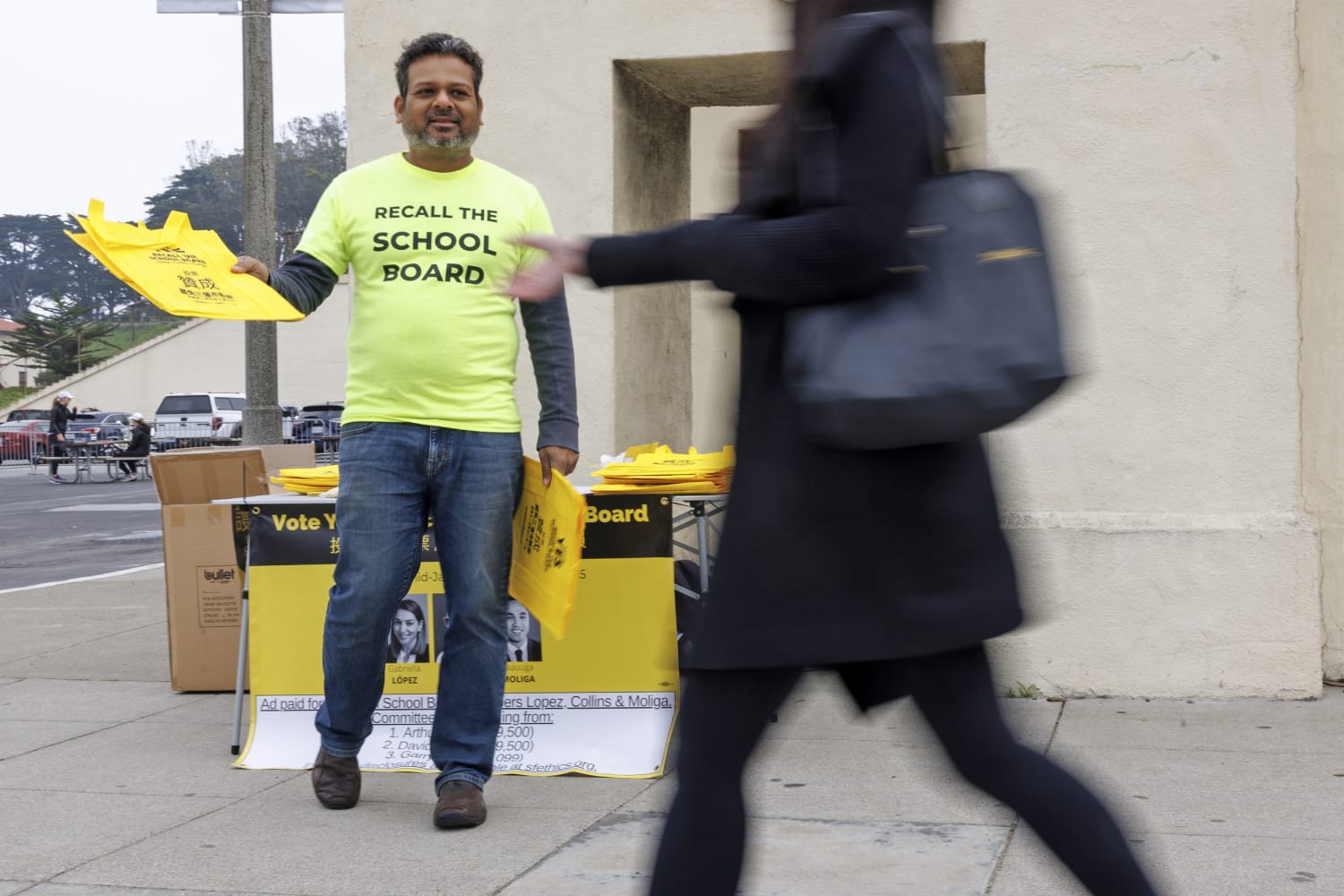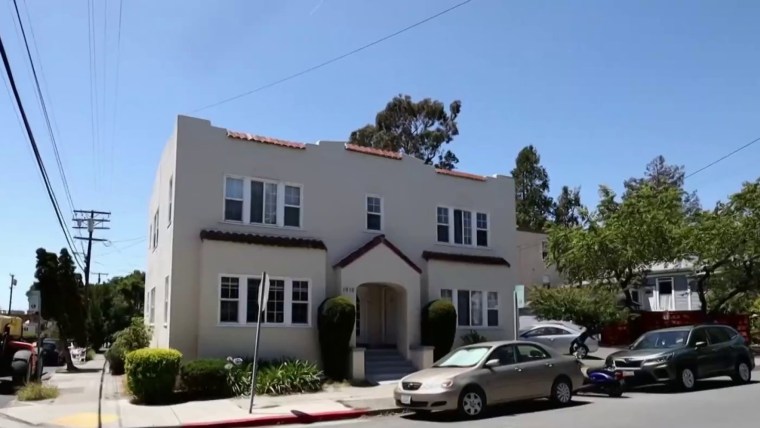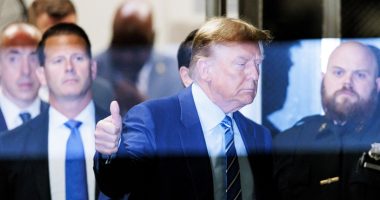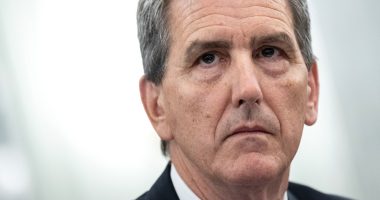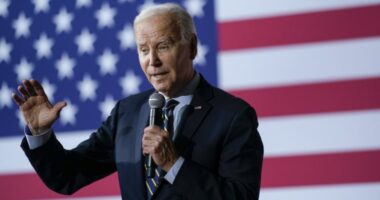SAN FRANCISCO — Like a lot of tech workers who arrive in San Francisco, Siva Raj considered himself apolitical when it came to local matters — at least for a while.
Born in India, he came to the U.S. tech hub in 2016 during the most recent boom and spent most of his time working on a health app he had founded.
“Just a classic tech worker — running my startup, totally disconnected from politics,” he said.
That changed over the past year. A father of two, Raj watched as the San Francisco public schools remained mostly closed last year during the pandemic even as other districts and private schools reopened. He and his partner began following the school board, which was embroiled at the time in a battle over renaming schools, including one named after Lincoln. He grew frustrated.
That frustration turned into action. Raj, 49, is now co-leading an effort to remove three school board members through a recall election in February — the first recall election for any local official in San Francisco since 1983.
“This is not a conventional political campaign,” he said. “We have a real, serious crisis now. Our kids are at risk.”
And he has company. More tech industry employees, founders and investors who used to shrug off local politics have taken a sudden and fierce interest in San Francisco government in a way that could both remake the city and have national reverberations. Many of these new entrants to local politics consider themselves left-leaning even as they target some of the state’s most high-profile liberals over issues from crime and schools to housing shortages and small-business regulation.
Tech workers and venture capitalists are helping to fuel an attempted recall of District Attorney Chesa Boudin, a rising progressive star, and last year some joined an unsuccessful effort to oust Gov. Gavin Newsom. (Both Boudin and Newsom are Democrats.)
Peter DaSilva for NBC News
“Everyone I know is just mad — deeply, deeply mad,” said Zach Coelius, a venture capitalist and former startup founder who moved to the Bay Area in 2005. He said he and his friends practiced a “benign neglect” about the city’s politics for years, but now, “every friend I have is suddenly very engaged.”
But what white-collar tech workers see as solutions are often anathema to San Francisco’s established politicians or other residents, some of whom blame privileged tech workers for pushing out low-income neighbors. And the tech community is far from a homogenous group politically, with some pouring energy into causes such as labor organizing.
Faauuga Moliga, one of the three school board members who will be on recall ballots in February, said that while he has a lot of respect for the tech community, he’s not sure its members all want to work cooperatively with the rest of the city.
“How do we create a San Francisco for all of us? Or do you just want to create a San Francisco for yourself?” Moliga, the board’s vice president, said. The first Pacific-Islander on the school board, he grew up in the city and has watched family members get priced out.
San Franciscans have long criticized nonnative tech workers for not giving back, despite the riches they’ve earned in the latest version of the California Gold Rush and the gentrification they’ve helped cause. Tech executives, if they’ve engaged with City Hall at all, have often focused on their tax bills. And many tech workers left the city with the spread of the coronavirus, as San Francisco’s expensive rents became harder to justify.
“About 10 years ago, the political insiders started looking at tech and wondering, ‘When is tech going to vote?’” said Joel Engardio, a journalist who also does public relations for tech startups and is active in the school board recall and other political fights. “Tech workers were flooding into the city, but they weren’t engaged.”
For tech workers who have experience traveling to or living in places that do things differently, the complaints add up to stagnation.
“If you go to other major, world-class cities, they don’t have these problems,” Coelius said. “We can’t seem to build anything. We can’t seem to fix anything. And we can’t seem to have a city that can operate on a basic level.”
So far, he has channeled his anger into donating money to the campaign of another tech entrepreneur, Bilal Mahmood, who’s running in a special election for a San Francisco seat in the state Assembly. And like many people in tech, Coelius has been airing his frustrations on social media in often-brash posts, including one calling opponents of change “idiots” and “morons.”
San Francisco politics isn’t always welcoming to newcomers. The city that launched Vice President Kamala Harris and House Speaker Nancy Pelosi on their political careers is often dominated by tight-knit neighborhood groups and a maze of rival Democratic-affiliated political organizations that in most places would all be on the same side. (San Francisco has not one but two major LGBTQ Democratic clubs.)
But now, more of the software engineers, designers and entrepreneurs are putting down roots. While many in tech saw the pandemic as a chance to relocate to cities such as Austin, Texas, or Miami — places they saw as having better governance, or at least cleaner streets — others have stayed and are spending even more time in the city’s core with suburban office parks shuttered.
As newly awakened activists, they’re relatively wealthy, experienced in business and increasingly angry at long-standing local problems in what’s considered one of the country’s leading progressive cities.
Their past disengagement has elected officials asking about their motives.
“When I hear about the tech industry and how there’s big dollars coming into the school board recall, the first thing I think is: Are these people really concerned about kids?” Moliga said. He added that he wonders if they are more concerned about ideological issues such as weakening the teachers union — an echo of a national political debate about schools.
In parallel with the school debate is a fight over crime, playing out ahead of a vote in June on recalling the city’s district attorney. Boudin, 41, has gotten national attention since his 2019 election because of his opposition to mass incarceration and his unusual background. A Rhodes Scholar whose parents were Weather Underground members who served time in prison, he worked briefly as a translator in the Venezuelan government and as a public defender.
Several wealthy tech venture capitalists — including Garry Tan, an early investor in Coinbase, and David Sacks, a co-founder of PayPal and longtime Republican donor — are among the biggest donors to the campaign to remove Boudin. Tan has given $50,000, and Sacks $75,000.
Fueling the opposition to Boudin is not just perceptions about crime rates and a series of retail thefts and other high-profile cases, but also a tech dispute: Boudin in 2020 sued the delivery app DoorDash over worker protections.
But the recall election is also attracting tech activism in support of Boudin. Chris Larsen, a co-founder of the startup Ripple and a billionaire, said he has given $100,000 to the anti-recall campaign and he expects others to give even more over the next six months, for and against Boudin.
“I think that will be a national campaign, in a way,” Larsen said. “We’re all mad about what’s going on in the city. … Blaming the DA is just an easy blame game and it doesn’t recognize the complexity of the problem.”
Larsen said that frustration and political activity have both been rising in the tech industry. A San Francisco native who’s been active in local philanthropy and civic projects for years, he said the industry could be much more influential locally if people stay interested and don’t alienate others.
“The tech industry needs to get involved and get involved in a way with staying power — and involved in a way that’s not trying to take over the government,” Larsen said.
For some tech workers, that has meant not starting new businesses but new political organizations to try to shake up city policy on housing, transportation and other subjects.
“I love the people here, I love the culture here and I want to live here forever,” said Steven Buss, who spent five years as a software engineer at Google before quitting last year to focus on local politics. He was already involved in a movement to build more housing — known as YIMBY, for “yes, in my backyard” — and he’s a co-founder of GrowSF, which is trying to counter many San Franciscans’ opposition to development.
“There’s this truism in startups: You’re either growing or you’re dying. And I think that’s true for cities,” Buss said. “We’ve got our local politics dominated by de-growth progressives. They don’t believe it should be easier to build housing or easier to start businesses.”
He and his co-founder, Sachin Agarwal, a former Apple engineer, said they’ve raised $500,000 for a new political action committee. They’re also producing voter guides, podcast episodes and an email newsletter that they said has 20,000 subscribers. They point out horror stories of San Francisco inefficiency, including the city’s refusal to grant a permit for a new ice cream shop, the decades it would take to build a new rail line and an elaborate city rulebook about home window replacement.
What kind of difference tech workers are making might not be known until the next round of city elections. Agarwal and Buss are hoping to swing races for the city’s Board of Supervisors, where recent margins of victory have been as narrow as 123 votes.
Source: | This article originally belongs to Nbcnews.com

